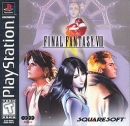nitekrawler1285 said:
^ People sometimes purchase games they don't enjoy. Does that mean those consumers aren't savy? If it is even possible for a consumer to not be savy then it puts a slight hole in your argument that sales and quality ALWAYS go together.
Sales are the best indication we have that are quantifiable, but it's possible that they don't always correlate with quality(Otherwise a used market wouldn't exist period and rentals wouldn't be needed if consumers were always savy). We don't assume that Wal-Mart has the best quality products because they sell more than anyone else, or that Macs are very low quality because they sell a lot less than PCs and I don't see why it's any different with games. Quality is a very subjective term and depends heavily upon different users and consumers and their demands and expectations.
|
For videogames, we have a used market. If someone doesn't like a game they can sell it or even give it to a friend. In both cases, they don't buy a new game, but buy a used on instead, which will not be reflected on the sales numbers.
Price, however, is a determiner of quality, but not in the way you think. Price is a barrier. If you want more people to try your product, then having an affordable price is how you eliminate that, then the product will stand on it's own two feet. You can make the best product ever and sell it for a million dollars, but who will want to buy that? People can't get it. So, is it really the best product if people can't get their hands on it. It gives them no benefit.
Let me quote someone else as he explains price with the PSP Go
Ask any learned salesman: Price is never ever ever the issue: Value is always the issue. If a prospect (potential customer) says "The price is too high!" what this prospect is really saying is "The price does not match the value in my mind. Please explain why I should pay $X for the product you offer!"
Nintendo, Mr. Kolan says, has a history of keeping their new launches at an affordable price. Well, while this might be true for Mr. Kolan, this may not be true for... a homeless person? "Affordable" is a strange word, isn't it? "Affordable" is completely ambiguous. A Ferrari is "affordable" to Bill Gates, after all. So let's rephrase it: Nintendo has a history of... building enough value in their new products to match the price for a large number of people around the world, whether that be in Japan, America, or Europe. After all, Nintendo's consoles almost always launch at a higher price in America than they did in Japan, and then an even higher price in the UK and Europe than they did in America. This is, of course, for a lot of reasons-- but the console still sells because of the value they've built for it. Hell, buying a Wii at Christmastime in America back in 2006 or 2007 sure wasn't very "affordable" for many people, but eBay operates on value, just like any other auction, and this is why Wii was sold via eBay for well over double the suggested retail price.........
.......A final note on price-- Let's take two products that cost the same, and compare the sales:
PSP Go (America) $249
Wii (America) $249
Was one affordable while the other was not? Well of course not: They're the same price. So why did on sell like crazy and the other fizzled? The value proposition.






































